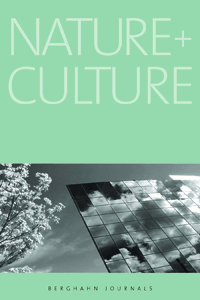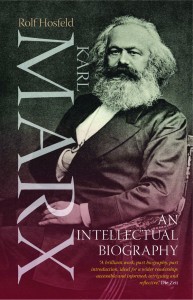21 November, 2024 – 3rd Thursday of November

World Philosophy Day is celebrated on the third Thursday of November, this year on the 21st of November.
Click to Read More: It was established by UNESCO to underline “the enduring value of philosophy for the development of human thought, for each culture and for each individual”.
Moreover they emphasise that “Philosophy is an inspiring discipline as well as an everyday practice that can transform societies. By enabling to discover the diversity of the intellectual currents in the world, philosophy stimulates intercultural dialogue. By awakening minds to the exercise of thinking and the reasoned confrontation of opinions, philosophy helps to build a more tolerant, more respectful society. It thus helps to understand and respond to major contemporary challenges by creating the intellectual conditions for change”.
Read more from the UNESCO World Philosophy Day page here.
In the spirit of this day, we have compiled some of our Philosophy Studies titles below.

Where is the Good in the World?
Ethical Life between Social Theory and Philosophy
Edited by David Henig, Anna Strhan and Joel Robbins
“This is a highly commendable piece of literature that will surely enrich the understanding of the intersection of social theory and philosophy as it relates to the good, and its interdisciplinary approach makes a complex topic both approachable and applicable for a diverse readership.” • Journal of the Royal Anthropological Institute
Volume 12, WYSE Series in Social Anthropology
Read freely available introduction.

Akrasia in Anthropological Perspectives
Edited by Patrick McKearney and Nicholas H. A. Evans
“These anthropological perspectives in akrasia do well to illustrate both the ubiquity of the phenomenon and the need to continue to collect cases of akratic human behaviour. Most normative approaches toward akrasia include aspiring toward its elimination, but collections like this give credence to the idea that akrasia is a mental phenomenon that greases the wheels of daily life.” • LSE Review of Books
Volume 14, WYSE Series in Social Anthropology
Read freely available introduction.

Metalogues on Issues in Anthropology and Philosophy
Geoffrey Lloyd and Aparecida Vilaça
“This is a work of outstanding interest and originality, both in form and in content.” • Nicholas Jardine, Cambridge University
Read freely available introduction.

The Origins of German Self-Cultivation
Bildung and the Future of the Humanities
Edited by Jennifer Ham, Ulrich Kinzel, and David Tse-chien Pan
Recent devaluations of a liberal arts education call the formative concept of Bildung, a defining model of self-cultivation rooted in 18th and 19th century German philosophy and culture, into question and force us to reconsider what it once meant and now means to be an “educated” individual. This volume uses an arc of interdisciplinary scholarship to map both the epistemological origins and cultural expressions of the pivotal notion of Bildung at the heart of pursuit in the humanities. From its intriguing original historical manifestations to its continuing resonance in current ongoing debates surrounding the humanities, the editors urge us to ask and discover how the classical concept of Bildung, so central to humanistic inquiry, was historically imagined and applied in its original German context.
Volume 27, Spektrum: Publications of the German Studies Association
Read freely available introduction.

Open Access
What Brain–Computer and Mind–Cyberspace Interfaces Mean for Cyberneuroethics
Calum MacKellar
“Calum MacKellar wrote a stimulating book which can be read as a primer covering most aspects of the complex and rapidly growing field of man-computer interactions. The technology will continue to develop, but the ethical problems outlined here will probably remain the same.” • Anthropos
Read freely available introduction, and more with open access.

The German Humanist Tradition and the Future of the Humanities
Alexander Mathäs
“Beyond Posthumanism is a timely intervention into a high-stakes debate on the value of humanist education today. The book situates this debate in a wider historical framework, thereby demonstrating the often overlooked complexity of humanistic concepts. Highlighting literature’s unique ability to serve as a meta-sphere for reflection, this is a comprehensive and thoughtful consideration of one of the great questions of contemporary education.” • Christine Lehleiter, University of Toronto
Volume 22, Spektrum: Publications of the German Studies Association
Read freely available introduction.
Berghahn Journals

Executive Editors:
For the UKSS
John Gillespie, Ulster University
Katherine Morris, Mansfield College Oxford
For the NASS
T Storm Heter, East Stroudsburg University
Constance Mui, Loyola University
Sartre Studies International is a peer-reviewed scholarly journal which publishes articles of a multidisciplinary, cross-cultural and international character reflecting the full range and complexity of Sartre’s own work. It focuses on the philosophical, literary and political issues originating in existentialism, and explores the continuing vitality of existentialist and Sartrean ideas in contemporary society and culture. Each issue contains a reviews section and a notice board of current events, such as conferences, publications and media broadcasts linked to Sartre’s life, work and intellectual legacy.
Current Issue: Volume 29, Issue 2
View more from Berghahn Journals and receive free access to relevant articles!


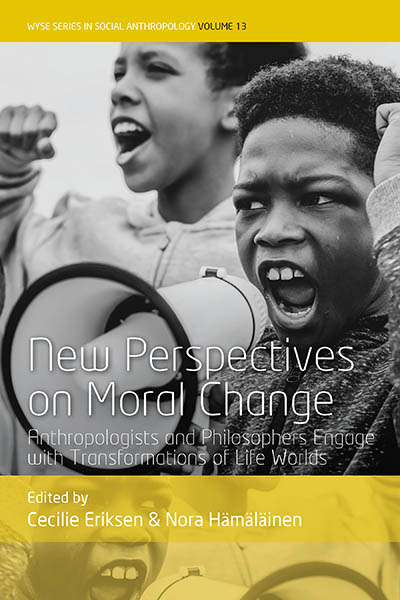
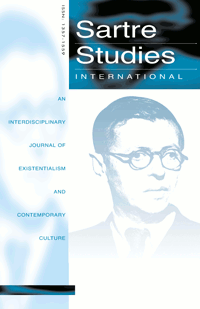
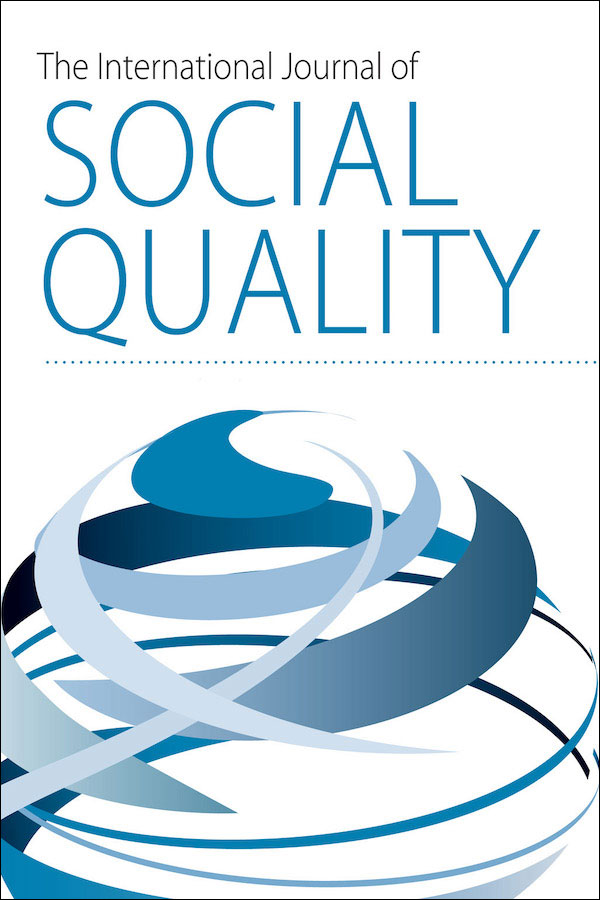
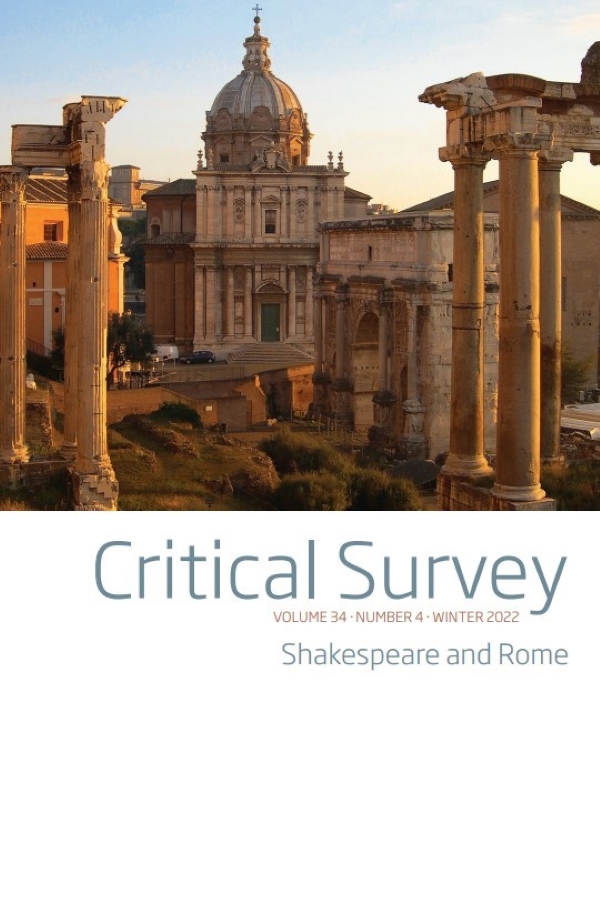



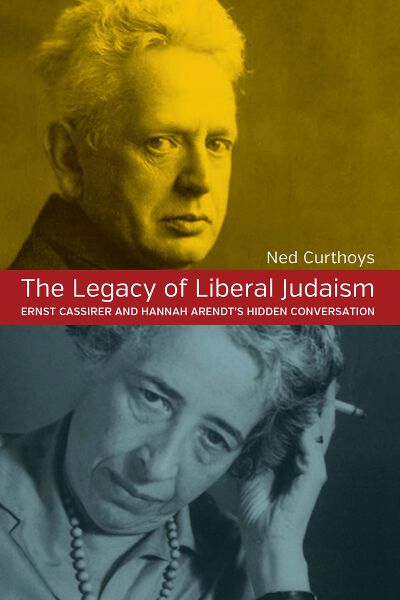 The Legacy of Liberal Judaism:
The Legacy of Liberal Judaism: